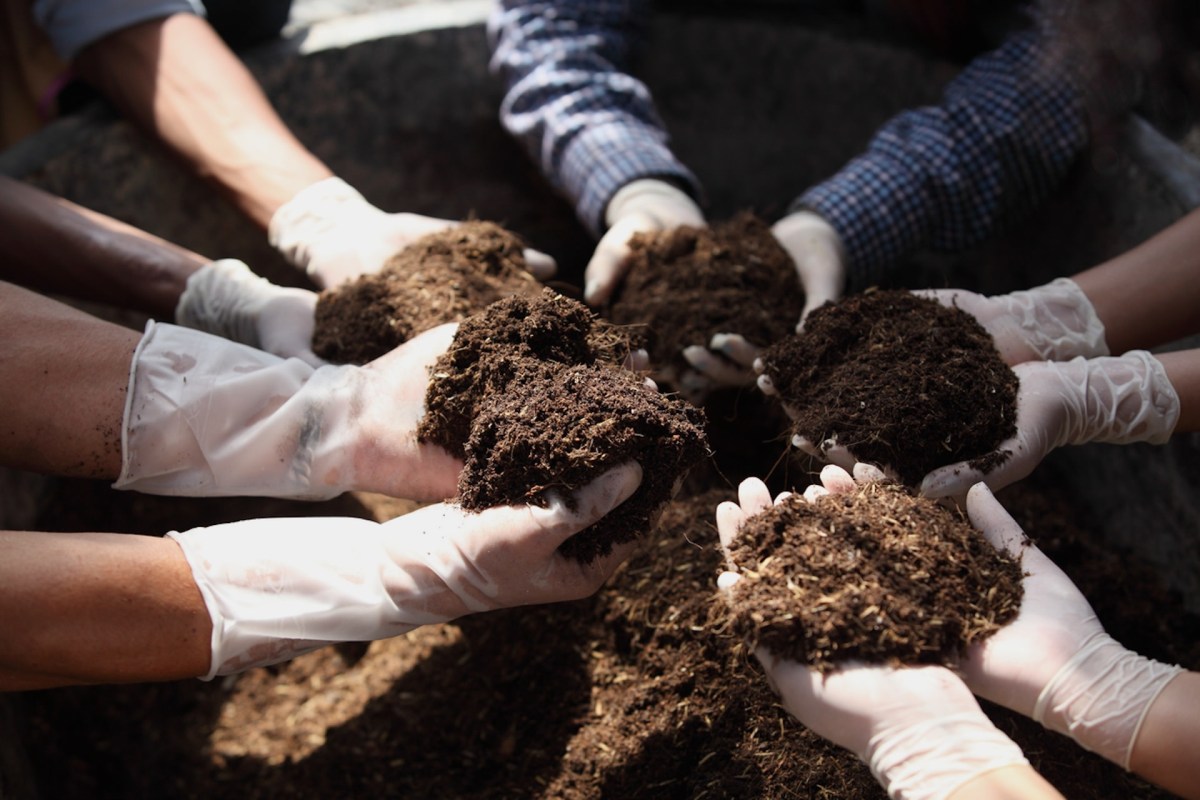The Wesley School in Los Angeles has a new composting program designed to get kids involved in saving the planet, NPR reported.
Since 2022, food waste from the school's lunchroom has been collected in huge barrels instead of being added to the city's green waste bins. In October 2023, students from kindergarten to eighth grade were present to open the first bin and see the results of their work.
Steven Wynbrandt, a local farmer and composting consultant, helped design the program. In October, he was there to give the kids their big reveal. "Ok! Want to crack this baby open?"
🗣️ If you compost your food scraps, what's your primary motivation?
🔘 Improving my garden's soil 🌱
🔘 Saving money on fertilizer 💰
🔘 Helping the planet 🌎
🔘 I don't compost 🚫
🗳️ Click your choice to see results and speak your mind
"Yeah!" cheered the students.
What they found inside the barrel was rich, earthy, dark-brown compost. Compost is broken-down organic waste, and it's incredible for your garden because it's so rich in nutrients. By gathering kitchen scraps, yard waste, and fall leaves, you can create free, eco-friendly fertilizer.
According to NPR, the kids at Wesley School will get to see their homemade fertilizer in action. Some of it's going to be used to fertilize plants around the school, including growing more food. The rest will be donated to families that want to use it at home or to other organizations outside the school.
"That's my orange chicken in there," sixth grader Finn told NPR. "That's not just like any food. Somewhere in there is my food."
Fifth grader Leo added: "Knowing I'm a part of something good just helps me sleep at night."
Giving kids that clear sense of their ability to make a difference is vital, according to therapist Jennifer Silverstein.
"Instead of [teaching kids] just, 'all these horrible things are happening,' it's like, 'all these horrible things are happening, and there's all these adults out there who are really actively trying to make it better. And here's ways you can participate,'" Silverstein told NPR.
Wynbrandt agreed. "A lot of us, especially kids, feel really overwhelmed and powerless and don't know what to do," he told NPR. "This is quite an existential crisis, and how do we make a difference? How do we make a dent?"
The Wesley School children's food collection will make a big difference. Instead of sending the food to rot and generate methane air pollution in a landfill, they're turning it into fertilizer for air-purifying plants.
Other school cafeteria programs — like this one to reduce wasted milk — have also shown great potential in helping fight waste and pollution.
Join our free newsletter for easy tips to save more, waste less, and help yourself while helping the planet.









